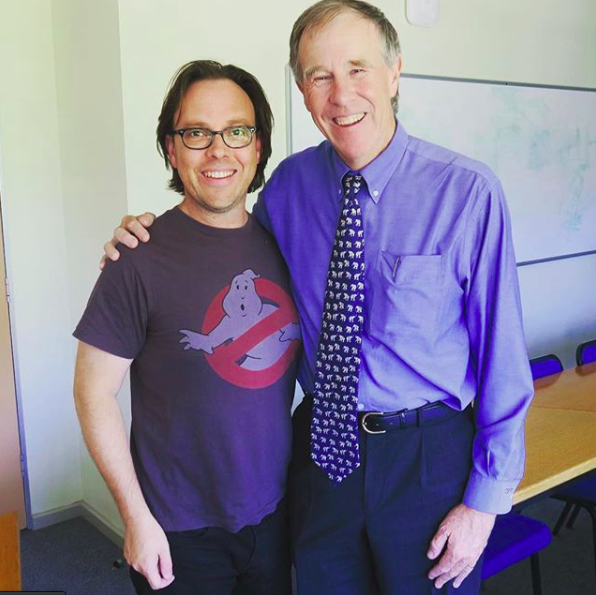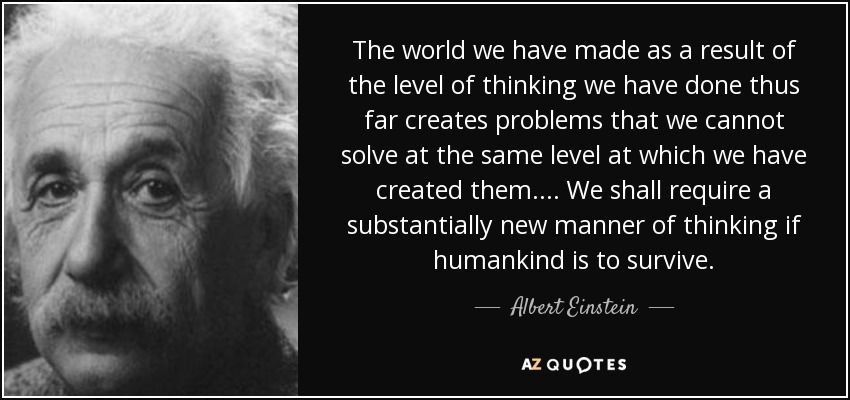How to improve your critical thinking skills
The way you think can literally mean the difference between success and failure - here's how to improve it.
The way you think can literally mean the difference between success and failure.
Years ago I had a long chat with Prof Tim Noakes at the Sports Science Institute in Newlands, Cape Town; he explained that at the elite sporting level (Olympic level etc.) there is very little difference between different athletes physiologically.

Research was showing that the real difference between winning and losing an event came thanks to the ability of an athlete to visualise their preferred outcome. When athletes were able to enter a state of mental flow, they would often not even have to consciously think about their action - it came almost intuitively, as if they were on some kind of 'automatic pilot mode'.
As somebody who studies the future, and how people and companies can design and create more profitable and sustainable ones - I found this fascinating.
A lot of the work that I do with clients involves examining the limiting and often unchallenged beliefs that hold people and companies back from realising their true potential. This sounds simple, but it a lot harder than you can imagine.
What it required to get this right is the ability to tap into the skill of critical thinking, which as we all know, is one of the key skills identified by the World Economic Forum on their list of much desired skills of the future.
But the prevalence of critical thinking in people is actually quite rare. It's a skill that needs to be practiced to improve.
Firstly - what is critical thinking?
Critical thinking is the objective analysis of historical facts and conjecture about the possible future to form a judgment and / or decision about a course of action.

Critical thinking results then in the ability to make better, more informed decisions. You can see how this might actually be useful in life.
So how might you improve you ability to do this? Here are a few things to try to get better at it:
- Realise that you might be wrong in what you think: People hate being wrong. It makes us feel foolish and ashamed. Nobody wants to feel like an idiot, so often what happens is that we latch onto an ideology and then defend the hell out of it, because the idea of questioning why we think what we think would open us up to ridicule if others found out. But by blindly believing in the thoughts and thought-patterns that have supposedly always served us in the past, while trying to navigate a future which is so radically different from anything that we have known before - we miss the opportunity to let go of old, dated-thinking and explore new, more effective ways of doing things. Challenging our own thinking is a conscious challenge of self-awareness that needs practice and a fair amount of courage. The best way to do it is to take time out of your day, schedule the time if you must, to examine your own thoughts and the way that you choose to think about things. It's the practice of thinking about thinking.
- Try to disprove what you believe to be true: As somebody who believes in science and the logic of scientific proof - try to falsify what you believe to be the truth. Karl Popper is widely considered to be the philosophical father of scientific theory. His claim to fame is that he urged science to engage in a 'continual effort to test theories against experience and make revisions based on the outcomes of these tests.' The idea then is to discover under what conditions your theory can be proven to be false.
- Talk to different people: The world is full of people with wildly different perspectives and experiences of life. People have different views about how to live life and how they see the world. By just talking to the same kind of people that you have always spoken too in the past - you are robbed of the chance to see the world from different angles, and in a multitude of unique ways, which can really limit your ability to solve problems creatively. Starting today - challenge yourself to talk to somebody from a totally different background to your own. Seek them out, buy them a cup of coffee, listen carefully to what they have to say and take away at least one lesson from the experience.
- Get out of the office and into the street: This is perhaps far more of a South African phenomena than something which is a problem elsewhere, but far too few leaders, or people of influence, ever actually take the time to get out of the office and walk the streets of our cities. There is a lot of value in taking the time to walk through the Golden Acre shopping centre, to try catch a Metrorail train home one evening, or simply leave your car at the office one night and attempt to ride your bicycle home. It's an exercise in opening up your worldview - expanding your experience of the world and challenging many of the ingrained assumptions that you unconsciously hold. It might sound life-threatening, but I promise you it'll be far more rewarding that what you might expect.
Critical thinking requires a deep level of self-awareness and curiosity - these are not personal attributes that are in abundant supply in the world today. But the skill of critical thinking can be improved with effort - which will in many ways make your job of improving judgement and decision-making far more profitable and accurate.

